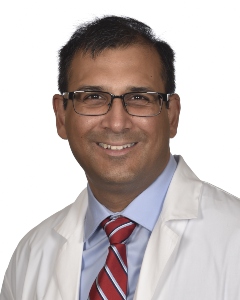New lung cancer guidelines from the American Cancer Society suggest that 5 million more Americans should be getting checked annually for signs of the deadly disease.
Most notable among the organization’s recommendations is that smokers with a minimum 20-pack-year history should be screened every year, regardless of when they quit smoking. This replaces guidance that said the risk was low enough after 15 years that screening was no longer needed. Other changes expand the age range and decrease the minimum number of pack years smoked.
It’s unlikely, however, that the revised guidelines will have an immediate impact – at least in terms of insurers being willing to pay for more screenings. But you should still consider annual screenings.
The American Cancer Society is one of several organizations that offer guidelines on screenings and other cancer-related health issues. Others include the America College of Family Physicians and the National Comprehensive Cancer Network. But the one that matters – from an insurer perspective – is the U.S. Preventive Services Task Force, an independent panel of volunteer experts who make evidence-based recommendations.
And at least for now, that group uses a slightly different set of guidelines.
Cancer Screening Guidelines
The task force most recently updated its guidance in early 2021.
Under those changes, the screening eligibility age dropped from 55 to 50 and the maximum age went from 75 to 80, along with a decrease in the smoking history requirement to 20 pack-years from 30 pack-years. (A pack-year is calculated by multiplying the number of packs of cigarettes smoked each day by the number of years you have smoked.) That change was estimated to add 6.4 million people to the ranks of those eligible for annual screenings.
The organization recommends discontinuing screenings 15 years after you stop smoking, or if you have a serious health problem that substantially limits your life expectancy.
But the new American Cancer Society guidelines argue that your risk for developing cancer remains high, regardless of whether you stopped smoking yesterday or 20 years ago.
Looking at this from a long-term perspective, this is likely to be good news for longtime smokers who have quit. But change can be slow. It could take a couple of years before this more aggressive recommendation makes its way into the U.S. Preventive Services Task Force’s own standards.
What Does It Mean for You?
If you have a 20-year pack history and stopped smoking more than 15 years ago, you should consider an annual screening. The recommended test is a “low-dose CT scan” (LDCT). As you lie on a table, a series of X-ray images produce a detailed, three-dimensional image of your lungs. It’s a fast, painless and effective way for doctors to detect lung nodules as small as a grain of rice.
The CT scan’s lower dose of radiation limits the risk of radiation exposure. Should preliminary scans detect an issue, doctors can retrieve cells from the lungs for further analysis by sampling tissue, fluid or mucus in and around the lungs or through a surgical biopsy.
The catch is that you may run into payment issues with your insurer since many of them only follow the task force’s recommendations. Fortunately, this medical test isn’t astronomically expensive if you have to pay for it yourself. Often, your health-care facility will provide testing – if rejected by an insurer – for a couple hundred dollars.
Importance of Early Detection
Lung cancer remains the top cause of cancer deaths in the U.S., accounting for one of every five cancer deaths. It kills more than colon, breast and prostate cancers combined. One of the reasons is that it is often not detected until reaching more advanced stages. It’s estimated that 85 percent of lung cancer patients have no symptoms during early stages of the disease.
But if it is caught very early, your doctors have a much better chance of curing the cancer. In fact, a recent study shows an 87 percent 20-year survival rate for stage 1 lung cancer. And with recent advances in chemotherapy, immunotherapy and robotic surgery, your survival odds continue to get better, even when the cancer is caught in later stages – before it reaches end stage.
Choose to Stay in Touch
Sign up to receive the latest health news and trends, wellness & prevention tips, and much more from Orlando Health.
Sign Up





